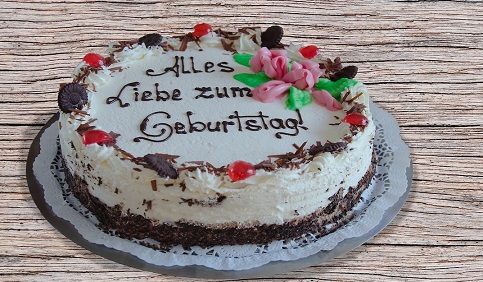
In many parts of the world, a child’s birthday party is a Pinterest-worthy explosion of balloons, goody bags, and sugary chaos. But in Germany – especially in kindergarten – birthday celebrations look a little different.
They’re quieter. Simpler. And governed by a surprising number of unspoken rules.
If you’re new to German culture or raising a child in Germany, your first experience organizing a kindergarten birthday may leave you wondering: Is this allowed? Should I bring that? Wait… is chocolate okay?
Take a deep breath. You’re not alone.
German birthday culture for young children is thoughtful, modest, and shaped by community-minded values. Here’s what you need to know to celebrate the right way – without stepping on cultural toes.
Rule #1: Keep It Modest (Seriously)
German kindergarten birthday parties are low-key affairs. No clowns. No themed entertainers. No giant cakes with edible glitter.
In fact, less is more – and often expected.
Parents typically send their child to school with:
- A small homemade snack to share
- A few modest decorations (if allowed)
- A tiny gift for the group (like a new board game or picture book)
- Maybe a birthday crown made at home or by the teacher
That’s it.
Over-the-top displays of wealth or excess are frowned upon. The goal is to celebrate the child – not compete with other parents.
Rule #2: Sugar? Maybe. But Not Too Much.
Here’s where things get tricky. In many kindergartens, you’ll find strict guidelines – or at least strong preferences – about what kind of food is acceptable.
A chocolate cake might be fine. But:
- Candy? Probably not.
- Artificial colors? Unwelcome.
- Packaged sweets? Often banned.
Preferred options include:
- Fruit skewers
- Muffins (homemade is best)
- Mini croissants
- Veggie sticks with dip
- Simple sheet cake (low sugar, ideally)
Check with the educators beforehand. Some kindergartens only allow sugar-free treats. Others might ask for allergen-free options. And nearly all appreciate when you avoid plastic packaging.
Rule #3: It’s Not About the Parents
In many countries, kindergarten birthdays are family affairs. In Germany, they’re not.
You won’t be invited to stay. You likely won’t even be there.
The birthday is celebrated during the morning, with the child’s classmates and teachers. You drop off your child, hand over the tray of snacks, and go. At pick-up, you might hear how it went – but that’s it.
Parents don’t linger. They don’t supervise. And they certainly don’t try to outshine the teachers.
The underlying idea? Let children own their moment.
Rule #4: No Gifts from Classmates (Usually)
This surprises many newcomers.
In most German kindergartens, there is no gift exchange between classmates on birthdays.
Why?
- To avoid comparison or competition
- To reduce pressure on parents
- To focus on the child’s experience, not the stuff
Instead, the birthday child might receive:
- A small handmade gift from the class (like a drawing)
- A special birthday chair or decoration
- A ritual or story chosen by the child
The celebration is often warm, structured, and intentional – but not materialistic.
Rule #5: Expect a Birthday Circle
The Geburtstagskreis – birthday circle – is a cherished part of the day.
The child sits in a decorated chair. The class gathers around. There may be:
- Songs (often sung in rounds)
- A candle ceremony
- A puppet story or finger play
- A little “gift” from the teacher – like a card or poem
- A moment where the child shares a favorite memory or wish
The celebration is not flashy, but it’s deeply personal and symbolic.
And no, you won’t be there to witness it – but your child will likely come home glowing.
Rule #6: If You Invite Classmates to a Party at Home, Invite Everyone
This is a major social rule in German kindergartens – and one that causes stress if misunderstood.
If you’re throwing an outside-the-kindergarten party (like at your home or a park), and you hand out invitations at school, then you must invite the entire group.
This is seen as basic fairness.
If you only want to invite a few friends, you must:
- Hand invitations out privately, outside school hours
- Avoid discussing the party in front of others
- Be discreet and inclusive in spirit
Excluding one or two kids can lead to serious hurt feelings – and complaints to teachers.
Rule #7: Shared Responsibility Matters
German kindergartens thrive on a sense of shared community. That extends to birthdays.
It’s common for parents to:
- Help clean up after a celebration (if asked)
- Donate a book or toy to the class “in honor” of their child’s birthday
- Bring a thank-you note to the educators for organizing the ritual
- Follow written or unwritten rules without needing constant reminders
This isn’t just about etiquette – it’s about cultural alignment. You’re not throwing a party for your child. You’re collaborating with a small, intentional community to mark a meaningful day.
Why So Many Rules?
It may seem like a lot of structure for a four-year-old’s birthday. But it reflects some key German values:
- Modesty – Don’t show off.
- Equality – Don’t make other children feel left out.
- Health and sustainability – Avoid sugar, waste, and plastic.
- Autonomy – Let the child be at the center.
- Community-mindedness – Think beyond your own kid.
The birthday party becomes less about spectacle – and more about belonging.
What to Do as a Newcomer Parent
If you’re new to German kindergarten culture, here’s your cheat sheet:
- Ask the educators what’s allowed
- Prepare something simple and homemade
- Skip the goodie bags and big balloons
- Celebrate at home – but keep school celebrations minimal
- Focus on kindness, not Pinterest
- Relax – no one is judging your baking
And remember: a banana smiley face tray often wins more praise than any elaborate cake.
A Kinder, Gentler Birthday
In Germany, kindergarten birthdays may feel understated. But for the child, they’re often deeply meaningful.
They mark the day with songs, candles, community, and quiet joy. They say, “You are part of something.” And they do it without sugar overload, competitive gifts, or chaos.
It’s a lesson in celebrating with intention – and raising kids who value connection over stuff.
And really, that’s something worth singing about – preferably in a birthday circle.
Continue Exploring the German Family Series:
- Raising Children the German Way: Freedom, Structure, and Forest Schools
- Why German Kids Walk to School Alone: Independence from a Young Age
- The Curious Tradition of Schultüte: Why German Kids Get a Giant Candy Cone
- Family Life in Germany: What Makes It So Unique?
- German Toys with a Purpose: Education Through Play
- The German Parenting Style: Strict, Structured, and Surprisingly Relaxed







